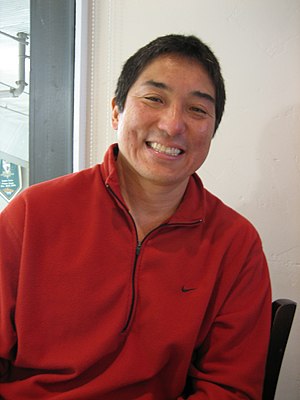Down to Business: Expert Views on Business Plans
 10:22 PM
10:22 PM
 Secrets of the Music Industry
, Posted in
Babson College
,
Business
,
Business plan
,
David Lee
,
Guy Kawasaki
,
Investor
,
Sarah Lacy
,
Small business
,
StumbleUpon
,
SV Angel
,
0 Comments
Secrets of the Music Industry
, Posted in
Babson College
,
Business
,
Business plan
,
David Lee
,
Guy Kawasaki
,
Investor
,
Sarah Lacy
,
Small business
,
StumbleUpon
,
SV Angel
,
0 Comments
Bio/Background
David Lee is considered an expert in business plan fundr
aising. In addition, he is a General Partner in SV Angel (venture capitalist firm) out of CA. SV Angel focuses on start up ventures that fuse technology development with entertainment. Mr. Lee’s background before joining SV Angel involves Google and StumbleUpon where he was involved with business development for both companies.
aising. In addition, he is a General Partner in SV Angel (venture capitalist firm) out of CA. SV Angel focuses on start up ventures that fuse technology development with entertainment. Mr. Lee’s background before joining SV Angel involves Google and StumbleUpon where he was involved with business development for both companies.
David Lee believes in substance over show. The information must make an impactful statement followed by hard evidence to prove and justify that statement to investors. Substance over show is imperative because the investor must know there is a solid plan in place and not just a great idea without a path to get to the destination. Moreover, it is my opinion that the sentiment discussed above is why Mr. Lee is quoted as saying, "[t] here are a bunch of rich people and firms subsidizing tech entrepreneurs, but this time the entrepreneurs are better”, within an article by Mark Lacter for LA Observed. (Lacter, 2011)
Also, Mr. Lee feels it is important for the backstory to be told for an investor to see the heart and passion necessary for a successful venture to move forward. If, the investor doesn’t see the business owner as excited for themselves as they are for others to jump onboard, then David Lee feels you are fighting a losing battle. Furthermore in a recent article by Sarah Lacy for Tech Crunch, Lee states an opinion for younger founders doing better than older company founders based off of desire to put in the work necessary to build the business from the ground up. (Lacy, 2011)
Business Plan Expert #2: Guy Kawasaki of Apple
Bio/Background
 Image via Wikipedia
Image via WikipediaGuy Kawasaki is known from Apple computers where he began work in the early 1980’s. From Apple, Mr. Kawasaki started a few businesses that developed software later to return to A
pple in 1995. Later still, he left Apple to start his own company called Garage (matchmaker for angel investors and entrepreneurs). Guy Kawasaki has a B.A. from Stanford University, M.B.A. from UCLA, and is an Honorary Doctorate from Babson College.
pple in 1995. Later still, he left Apple to start his own company called Garage (matchmaker for angel investors and entrepreneurs). Guy Kawasaki has a B.A. from Stanford University, M.B.A. from UCLA, and is an Honorary Doctorate from Babson College.
What is important in a BP to investors?
Mr. Kawasaki believes there are certain parts to the business plan that stand out: Executive Summary, Management Team, Business Model, and Product being his top four. Furthermore, he believes a business plan developer should spend 80% of their time on the executive summary because this piece is typically first viewed by an investor and if not impressed the investor will not read further.
Subsequently, the size of the business plan should not be more than 20-30 pages in Guy Kawasaki’s opinion. He feels the plan loses its bite and effectiveness if too much information is provided. Furthermore, each section should begin with just one page per section and only augmented if absolutely necessary. In a recent article found on Artist House Music by George Howard, Mr. Kawasaki describes the power slide pitch to investors as being “…no more than 20 minutes” with 10 or so slides to succinctly get the business model concepts across to investors. (Howard, 2007)
Sources:
Howard, G. (2007). How to create a business plan. Artisthousemusic.com.
Retrieved on Septemeber 6, 2011 from
http://www.artistshousemusic.org/articles/how+to+create+a+business+
plan
Lacter, M. (2011). Gold rush is back in silicon valley. LAObserved.com. Retrieved
on September 5, 2011 from
http://www.laobserved.com/biz/2011/04/gold_rush_is_back_in.php
Lacy, S. (2011). David lee and ron Conway bust entrepreneur myths on stage at
disrupt. TechCrunch.com. Retrieved on Septemeber 6, 2011 from
http://techcrunch.com/tag/david-lee/






.jpeg)










